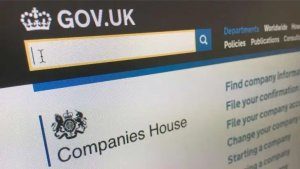- Corporate recovery, restructuring & insolvency

Longer Reads
What you need to know: directors’ duties
Senior Associate Gavin Kramer discusses the key responsibilities of directors from exercising independent judgment to avoiding conflicts of interest as set out in The Companies Act 2006.
1 minute read
Published 5 July 2023
Key information
- Specialisms
- Business
Many directors, busy running their companies in difficult economic times, may regard the question of their duties as a director to be a largely abstract concern to which little attention needs to be paid. However, the breach of those duties can have serious real-life consequences, from claims against the director by the company or, more usually, a liquidator if the company fails and goes into insolvent liquidation, to the risk of being disqualified from acting as director on the application of the Secretary of State for a period ranging from two years to, in the most extreme cases, fifteen.
These duties fall into two categories – the statutory duties set out in the Companies Act 2006, also known as the general duties, and what are called fiduciary or common law duties, developed over time by the courts, which continue to apply alongside the statutory duties.
The statutory duties include acting in accordance with the company’s constitution, promoting the company’s success for the benefit of shareholders, exercising independent judgment, and avoiding conflicts of interest, among others. Fiduciary duties involve acting with loyalty and good faith, using the company’s assets for its benefit, and being informed about the company’s affairs.
These duties apply to all directors, including non-executive and de facto directors. The duty to promote the company’s success is modified to include the interests of creditors when the company is insolvent or close to insolvency. The greater the company’s financial difficulties, the more the directors should prioritise the interests of creditors.
Directors who breach the creditor’s duty prior to their company going into insolvent liquidation therefore run the risk of the liquidator taking legal action against them to recover a compensatory payment equal to the loss caused by their breach.
Directors who pay themselves excessive salaries or bonuses or who confer excessive rewards on employees whom they wish to favour, for example family members, when they know, or ought to know, that their company is insolvent or bordering on insolvency are likely to be breaching their duty to the company’s creditors, as well as their duties to the company, and putting themselves at risk of a claim for equitable compensation or damages by a future liquidator.
It is therefore important for anyone who is, or who intends to be, a director of a company registered in England and Wales to be aware of the duties described above. If in doubt about the correct steps to take, directors should seek legal advice at an early stage to avoid the risk of claims against them in the future.
This article was first published on Accountancy Daily in July 2023.
For more information, listen to our Directors’ Duties podcast.
Related content
Longer Reads
What you need to know: directors’ duties
Senior Associate Gavin Kramer discusses the key responsibilities of directors from exercising independent judgment to avoiding conflicts of interest as set out in The Companies Act 2006.
Published 5 July 2023
Associated sectors / services
Authors
Many directors, busy running their companies in difficult economic times, may regard the question of their duties as a director to be a largely abstract concern to which little attention needs to be paid. However, the breach of those duties can have serious real-life consequences, from claims against the director by the company or, more usually, a liquidator if the company fails and goes into insolvent liquidation, to the risk of being disqualified from acting as director on the application of the Secretary of State for a period ranging from two years to, in the most extreme cases, fifteen.
These duties fall into two categories – the statutory duties set out in the Companies Act 2006, also known as the general duties, and what are called fiduciary or common law duties, developed over time by the courts, which continue to apply alongside the statutory duties.
The statutory duties include acting in accordance with the company’s constitution, promoting the company’s success for the benefit of shareholders, exercising independent judgment, and avoiding conflicts of interest, among others. Fiduciary duties involve acting with loyalty and good faith, using the company’s assets for its benefit, and being informed about the company’s affairs.
These duties apply to all directors, including non-executive and de facto directors. The duty to promote the company’s success is modified to include the interests of creditors when the company is insolvent or close to insolvency. The greater the company’s financial difficulties, the more the directors should prioritise the interests of creditors.
Directors who breach the creditor’s duty prior to their company going into insolvent liquidation therefore run the risk of the liquidator taking legal action against them to recover a compensatory payment equal to the loss caused by their breach.
Directors who pay themselves excessive salaries or bonuses or who confer excessive rewards on employees whom they wish to favour, for example family members, when they know, or ought to know, that their company is insolvent or bordering on insolvency are likely to be breaching their duty to the company’s creditors, as well as their duties to the company, and putting themselves at risk of a claim for equitable compensation or damages by a future liquidator.
It is therefore important for anyone who is, or who intends to be, a director of a company registered in England and Wales to be aware of the duties described above. If in doubt about the correct steps to take, directors should seek legal advice at an early stage to avoid the risk of claims against them in the future.
This article was first published on Accountancy Daily in July 2023.
For more information, listen to our Directors’ Duties podcast.
Associated sectors / services
- Corporate recovery, restructuring & insolvency
Authors
Need some more information? Make an enquiry below.
Subscribe
Please add your details and your areas of interest below
Article contributor
Gavin
KramerSenior Associate
Specialising in Corporate recovery, restructuring & insolvency, Commercial disputes and Personal insolvency
Enjoy reading our articles? why not subscribe to notifications so you’ll never miss one?
Subscribe to our articlesMessage us on WhatsApp (calling not available)
Please note that Collyer Bristow provides this service during office hours for general information and enquiries only and that no legal or other professional advice will be provided over the WhatsApp platform. Please also note that if you choose to use this platform your personal data is likely to be processed outside the UK and EEA, including in the US. Appropriate legal or other professional opinion should be taken before taking or omitting to take any action in respect of any specific problem. Collyer Bristow LLP accepts no liability for any loss or damage which may arise from reliance on information provided. All information will be deleted immediately upon completion of a conversation.
Close







































